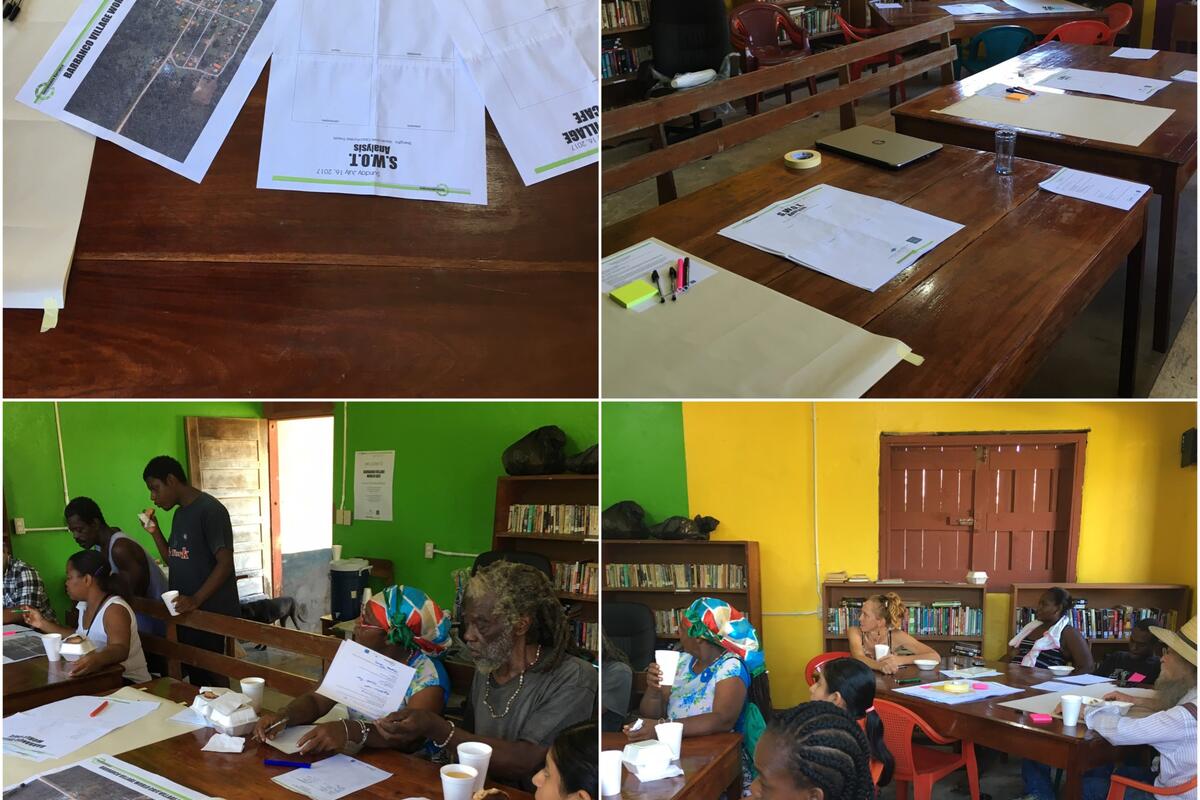
On Sunday July 16, 2017, all of my training in public community consultation was put to the test at a unique community planning event I organized and facilitated in Belize. The event was in the form of a World Café, led by myself as well as co-facilitators Eric Sanchez (fellow VIU Master of Community Planning QE Scholar) and Adrian Cus (a Rural Community Development Officer attached to the Belize Department of Rural Development). It was a memorable day for me and quite possibly a historical day for the planning community and for rural community development in Belize.
What made this event so memorable and timely? Times are changing, and there are many opportunities to contribute to positive change in Belize. The traditional top-down planning and development approach is becoming increasingly obsolete, as community members educate themselves and are demanding to be a part of the decisions that shape their communities. Like many other countries, Belize is greatly interested in the development of its rural and urban communities. Understanding that development is not quick or easy, there is recognition that sound plans and policies must be in place to help guide the process. Rural communities with small populations are often perceived as a weakness to development goals, when in all honesty they could represent significant development opportunities, with the right plans in place to guide them.
Barranco Village is one of the over 169 villages in the country of Belize and is the focus of my graduate project; working title “Sustainable Barranco: A ‘Bottom Up’ Village Economy Revival Master Plan”. This village suffers from extreme cases of rural to urban migration because of its economic stagnancy, as well as lack of opportunities for education and employment, which Belizeans take very seriously. This plan intends to address these challenges, with significant input from the community and guidance from professionals in the field of; Economics, Business Development, Tourism, and Rural Development.
Past projects in Belize and elsewhere have proven that imposing plans of any sort on communities without consultation are less valued by the community and therefore unsustainable on a long-term basis. A bottom-up approach is vital, and provides villagers with a greater sense of ownership for the decisions that are proposed in terms of physical, economic, and social development. I explored an idea to use a World Café technique to accomplish these goals, which is essentially created by breaking up a large general group into small round table conversations to discuss varying but connected topics, in order to identify issues and possible solutions from different perspectives. The findings are summarized and consolidated to create plans for action and development, and the ideas and vision of communities by incorporating their ideas and vision.
The World Café we conducted in Barranco Village this summer revealed interesting perspectives, cultural values, and opinions which would not have been uncovered without the open discussion among community members. Planners may be considered experts in their field, but they are merely visitors to these communities whose actual experts are the residents. Though the entire concept was new to all of the community members who participated, it was well received and valuable information was uncovered.
- Kenny Williams, VIU Masters of Community Planning Student & QE Scholar
